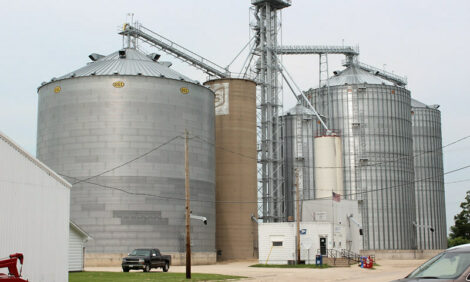



Organic Farming Welfare Claims Judged Misleading
UK - A magazine advertisement that maintained that organically farmed animals were reared in better welfare conditions than non-organically reared animals has been ruled misleading by the Advertising Standards Authority.The ASA has now ordered that the advertisement that was place by the Organic Trade Board trading as Why I Love Organic should not appear again in its current form.
"The ad must not appear again in its current form. We told OTB not to imply that organically farmed animals always experienced better conditions than non-organically farmed animals, when that was not the case," the ASA said in its adjudication.
The magazine ad for organic farming that featured a man and his son dressed in a pantomime cow costume was headlined "We love organic because we care about animals".
Text beneath quoted the man featured in the ad and said: "I like to see myself as the brains of this outfit, even if my son doesn't agree! But when he told me about organic, well, I never looked back. Organic means fewer drugs or antibiotics, it also means better conditions for animals so they get to thrive and grow more naturally. Surely that's good for them and good for our peace of mind! We're happy to pay a little extra for organic, because we believe that animals deserve a better life (this poor cow certainly does!)".
The ad stated: "There are lots of reasons to love organic, discover yours at www.whyiloveorganic.co.uk".
A farmer and an agricultural surveyor challenged whether the ad misleadingly implied that animals farmed in a non-organic way experienced lower welfare standards than those that were organically farmed.
The Organic Trade Board (OTB) explained that the ad aimed to highlight that organic farming had high animal welfare standards.
They said that organic farming was the only farming system in the EU, which was defined by a European legislative regulation.
They explained that the regulation set out the minimum rules for organic animal production. Those rules included that animals must have access to the outdoors and the number of animals per unit area must be limited; that drug and feed supplements were restricted and that much of the food that the animals ate must be produced on their home farm or organic farms in the region.
The OTB explained that the Department of Environment, Food and Rural Affairs (Defra) interpreted that regulation and set the standards which governed organic production in the UK. OTB said that those wanting to sell organic food in the UK had to meet those, legal minimum standards.
OTB explained that medical treatment for organically farmed animals was strictly controlled.
They explained that sick animals were treated with homeopathic and complementary remedies unless a vet said that the animal needed antibiotics.
They added that the routine use of giving animals antibiotics as a preventative measure had been prohibited in organic farming and that organic farming standards applied strict rules about the use of vaccinations.
The ASA said the OTB believed that no system of farming had higher levels of animal welfare standards than organic farms working to Soil Association standards.
the ORB provided a copy of the report "Farm Assurance Schemes & Animal Welfare: Can We Trust Them?" which was commissioned by the Commission in World Farming Trust in 2002. That report compared the assurance given for animal welfare under three animal welfare farming schemes: Farm Assurance, British Farm Standard and the Lion Quality Mark against the obligations placed on Soil Association certified organic farmers.
However, the ASA upheld tghe objections to the advertisement.
"We considered that the evidence provided by OTB showed the high standards to which organic farmers adhered," the ASA said in its adjudication.
"However, we noted that the ad claimed that organically farmed animals experienced better conditions.
"We considered that the claim suggested that in all cases, organically farmed animals experienced better animal welfare conditions compared to non-organically farmed animals.
"Whilst we noted that the evidence provided by OTB showed that organically farmed animals experienced high animal welfare conditions, we did not consider that it showed that in all cases, organically farmed animals experienced better conditions than non-organically farmed animals. We concluded that the ad was misleading."
TheCattleSite News Desk


